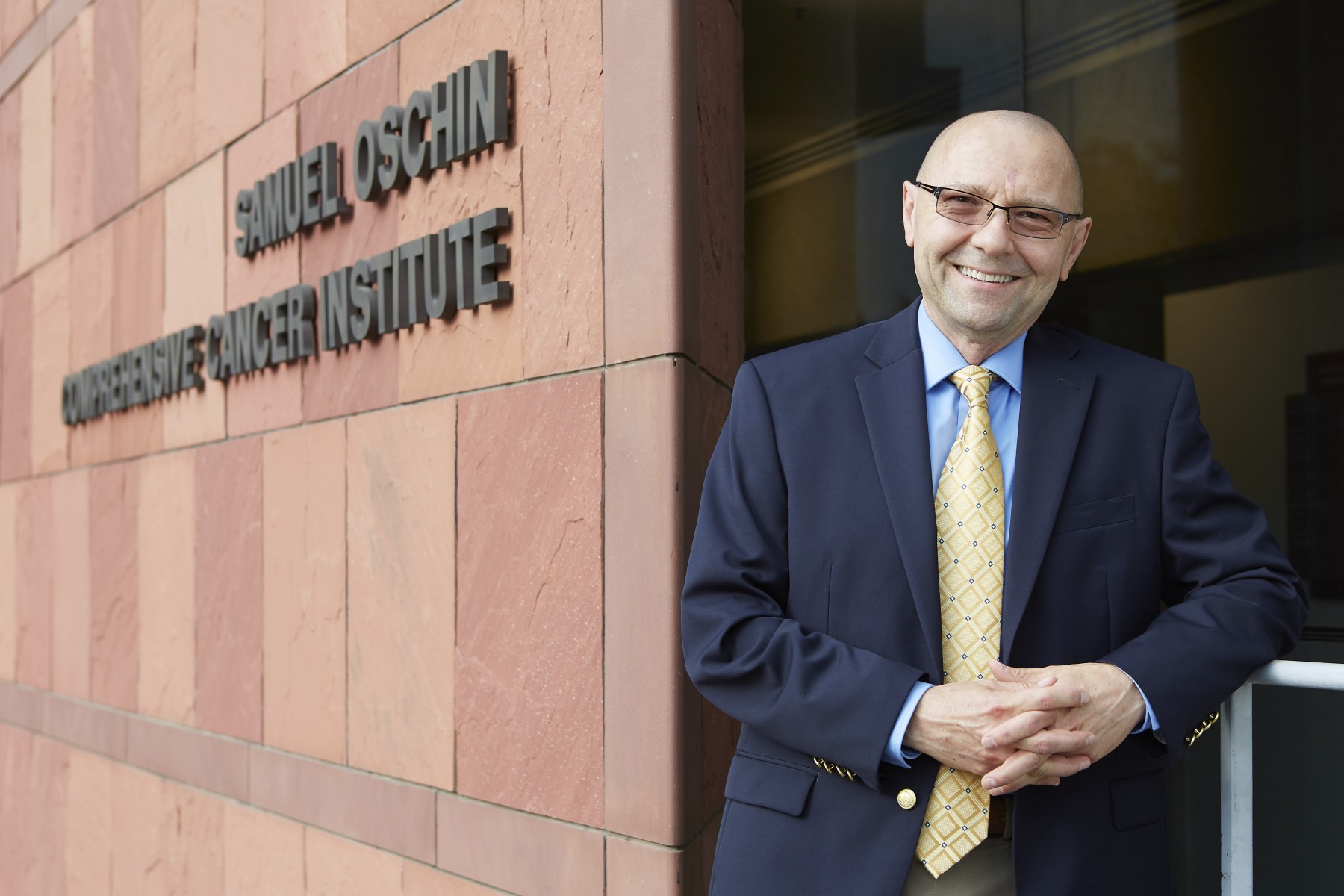2018: Cedars-Sinai Cancer Investigators Pioneer Novel Research, Targeted Therapies
Cedars-Sinai Cancer drove major advances in cancer research in 2018. Among these was a study
about a pancreatic cancer drug, Metavert, developed by Cedars-Sinai investigators to prevent the most common type of pancreatic cancer from growing and spreading. In a mouse study, the investigators found that the drug blocked chemotherapy resistance and significantly boosted the positive effects of radiation and two chemotherapy agents commonly used in humans. The research was conducted by Mouad Edderkaoui, PhD, assistant professor of Medicine and Biomedical Sciences, and Stephen Pandol, MD, director of Basic and Translational Pancreas Research. Their work was published in the journal Gastroenterology.
“Cedars-Sinai is leading revolutions that are shaping 21st century cancer medicine,” said Dan Theodorescu, MD, PhD, director of Cedars-Sinai Cancer. “Our institution is poised to have a major impact in healthcare through research discoveries and their development and implementation.”
Cedars-Sinai Cancer led additional groundbreaking research this year. Highlights:
- Prostate cancer: The journal JNCCN360 spotlighted a study led by Neil Bhowmick, PhD, director of the Cancer Biology Program, which found that prostate cancer can sometimes withstand and outwit a standard hormone-targeted therapy, causing the cancer to spread. The study findings also pointed to a simple blood test that may help doctors predict when this type of hormone therapy resistance will occur.
- Head and Neck Cancer : In a study published in the Journal of Clinical Oncology, Allen S. Ho, MD, head of the Head and Neck Program, outlined a new, more accurate system for assessing the severity of head and neck cancers and for predicting patient survival. The system’s guidelines center around counting the number of malignant lymph nodes found in each patient.
- Health Disparities: To address and reduce health inequities, the newly launched Research Center for Health Equity held educational events in communities across the Los Angeles region, including those in Koreatown and the downtown area. Event participants learned about cancer risks and prevention, signed up for health screenings and received help applying for health insurance. A video captured one event at a Korean church.
- Melanoma: Writing in the Dermatologist, Mark Faries, MD, described the latest treatment options for newly diagnosed melanoma patients. Faries identified two areas of particular interest – the role of sentinel lymph node biopsy in patient care and options for treatment after initial surgery. Both areas have seen rapid advancement and have been evaluated in clinical trials.




